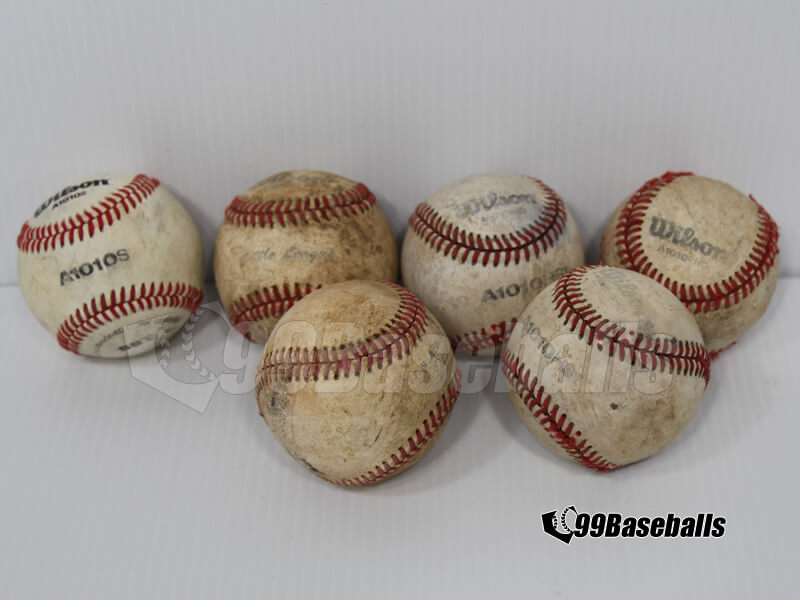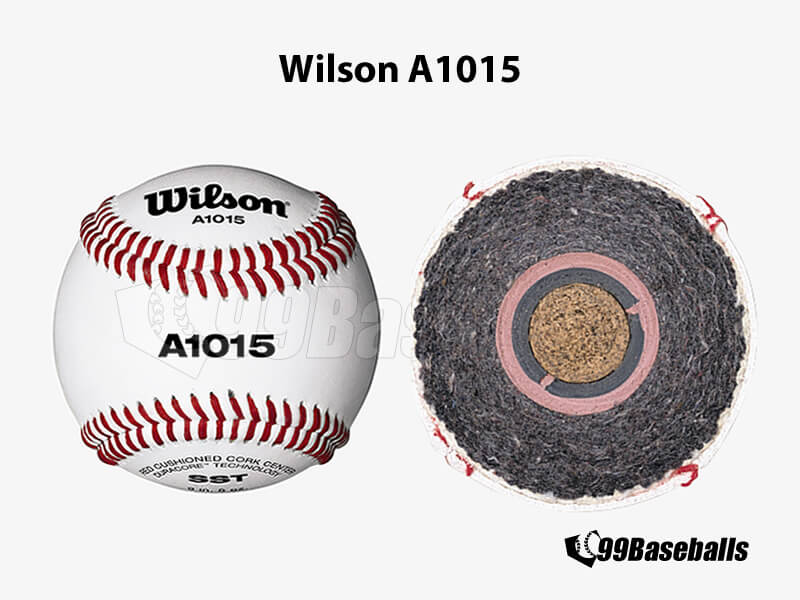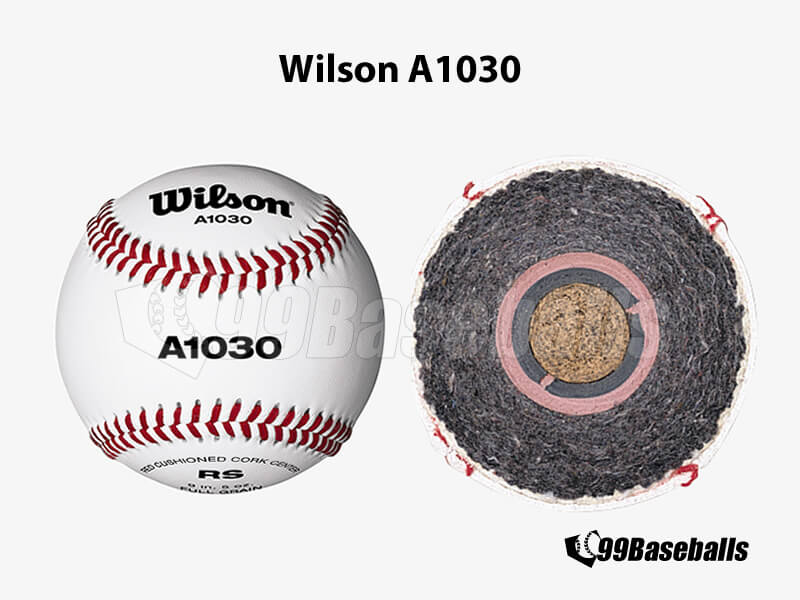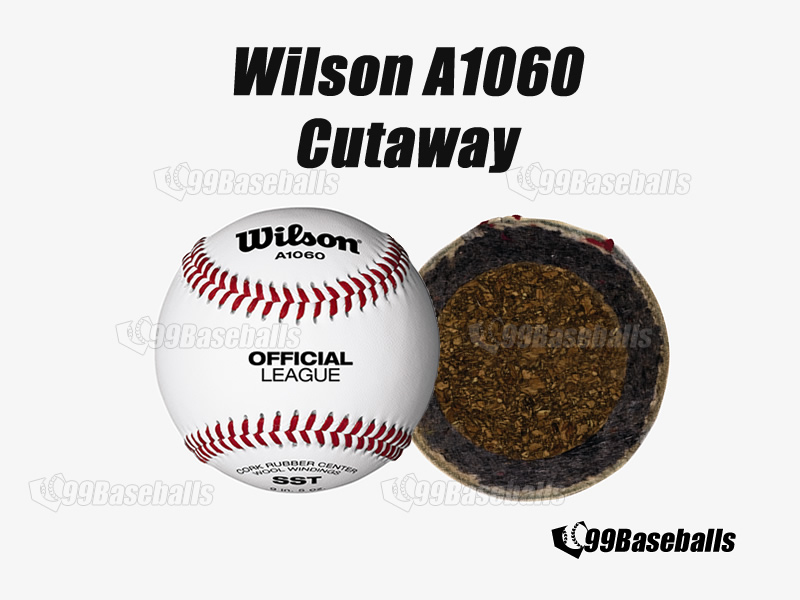Hey folks! Remember how y’all went nuts over that dive into baseball types we did back in ’19? Well, I’ve been itching to break down the whole Wilson baseball saga, especially to make things clearer for both the guardians of the game and the young guns swinging bats. Now, here’s the scoop: Wilson’s A1010 model? That’s your top-tier performer, leaving the A1030 eating its dust.

Wilson’s nailed it, just like Diamond and Rawlings, by lining up each model with its rightful place on the field. Ever tossed a ball that felt more like a marshmallow after a few hits? Yeah, that’s a kiddo league ball, not cut out for the big swings.
And hey, let’s chat bucks for a sec. Sure, hitting up Amazon or Dicks Sporting gets you quick pricing, but here’s a pro tip: have a chinwag with a distributor’s account manager. Those sticker prices? They’re just the opening act. Bulk buys can knock those numbers down a notch, like snagging a dozen A1010HS1s for around 90 bucks and then talking them down to about 80. My rec league team used to bulk order in December, and man, did we save a chunk of change – think 20% per box kind of savings.
Unraveling Wilson’s Naming Convention
Alright, let’s crack the code on Wilson’s model numbers. You might think bigger numbers mean better quality, but with Wilson, it’s the opposite. The lower the number, the higher the quality and, yep, the price tag goes up too.
Now, for the older kids throwing heat, Wilson’s competition-grade baseballs are kitted out with some serious tech. We’re talking Dura-Core Technology and Super Seam Technology (SST) describing top notch leather and the way they wind these baseballs.
Dura-Core Technology is all about keeping those balls tough under pressure, ensuring they keep their shape and hardness way better than the competition – think 15% better. This tech, mixed into the red cushioned cork, is a game-changer, making sure the ball stays hard and plays right, even after getting repeatedly smashed by a lumberjack.
Thanks to Wilson’s Super Seam Technology™, they’re not just any seams. They’re 20% higher than the usual and the seam track is a bit wider too, giving pitchers the edge they need to place the ball exactly where they want. So, when you’re on the mound, those SST seams are your secret weapon for control that’ll leave batters guessing.
Wilson A1001 baseballs
Wilson’s top of the line baseball is A1001, specifically designed for collegiate and high school play. Please note that as of March 2024, Wilson simplified the A1001 series and only makes A1001FS (flat seam) baseballs.
- Model: A1001FS
- Purpose: College (NCAA) / High school (NFHS) games
- Core: Red, double cushioned pill
- Winding: Premium grey and white wools
- Cover: Grade A full grain leather
- Where to Buy: Wilson online store
Wilson A1010 PRO baseballs
The A1010 series is Wilson’s next-best line of baseballs, designed for high school play and also considered college caliber by Wilson.
- Model: A1010PRO
- Purpose: College (NCAA) / High school (NFHS) games
- Core: Red, double cushioned pill
- Winding: Premium grey wool
- Cover: Grade A full grain leather
- Where to Buy: Wilson online store
Wilson A1010 HS1 baseballs
The A1010 is Wilson’s most popular ball for high school games. The A1010 HS1 offers performance characteristics similar to the A1010 PRO baseballs at more attractive prices.

- Model: A1010HS1
- Purpose: High school (NFHS) games
- Core: Red, double cushioned pill
- Winding: Standard grey wool
- Cover: Grade A full grain leather
- Where to Buy: Wilson online store
Wilson A1010 S (BLEM) baseballs
Meet the Wilson A1010 BLEM (blemished), also hitting the field as the A1010S. It’s the twin of the A1010HS1, minus some minor beauty marks that don’t mess with your game. We’re talking about Wilson’s “oops” version – the A1010S, sporting the occasional misfit seam or a bit of scuffed leather, but without that NFHS stamp of approval.
These balls might show their battle scars a bit more in adult league scuffles, earning them the rep of being the go-to practice heroes. Perfect for the coach keeping an eye on the budget but not willing to compromise on quality for Varsity, JV, and Freshman showdowns. And yeah, most adult leagues are all about the A1010S when it’s time to get down to practice business.

- Model: A1010S
- Purpose: High school games (does not come with NFHS stamp), adult league practice
- Core: Red, double cushioned pill
- Winding: Standard grey wool
- Cover: Grade B full grain leather
- Where to Buy: Wilson online store
Quality Level– 4/5
Wilson A1015 baseballs
The Wilson A1015 baseballs hit just the right note for JV and Freshman teams in high school ball. But here’s a heads-up: adult league teams might want to think twice before snagging these for practice. Why? The winding’s a bit more laid-back compared to the A1010 series, not quite holding up to the rough and tumble of grown-up gameplay.

- Model: A1015
- Purpose: High school JV/Freshmen (does not come with NFHS stamp)
- Core: Red, double cushioned pill
- Winding: Standard grey wool
- Cover: Grade B full grain leather
- Where to Buy: Wilson online store
Wilson A1020 baseballs
The Wilson A1020 baseballs were intended for regular season and tournament plays. Unfortunately, Wilson discontinued making A1020 back in 2020.

- Model: A1020
- Purpose: High school games (does not come with NFHS stamp) / tournament plays
- Core: Red, double cushioned pill
- Winding: Standard grey wool
- Cover: Grade C full grain leather
- Where to Buy: No longer available
Wilson A1030 baseballs
Wilsons A1030 is a widely used as a practice ball, as well as a ball used by many JV and Freshman programs.

- Model: A1030
- Purpose: JV/Freshmen high school games and practices (does not come with NFHS stamp)
- Core: Red, double cushioned pill
- Winding: Standard grey wool
- Cover: Grade C full grain leather
- Where to Buy: Wilson online store
Wilson A1030 are re-branded and approved for these leagues:
- Babe Ruth League baseballs, Tournament, A1982
- Dixie Youth baseballs, Official, A1062
- Little League baseballs, Tournament, A1074
- Little League baseballs, Senior, Tournament, A1072
- PONY baseballs, Tournament, A1075PL1
- USSSA baseballs, Tournament, A1030USSSA
Wilson A1035 baseballs
Tucked into the Wilson Champion Series, the A1035 ball steps up for game play and practice sessions, thanks to its rugged Grade C/D Full Grain Leather plus the same, tough Super Seam Technology. Please note the rubber and cork center (not Dura-Core Technology) which traditionally does not provide the same bounce as a double cushioned pill.

- Model: A1035
- Purpose: Youth Baseball League
- Core: Black rubber and cork
- Winding: Standard grey wool
- Cover: Grade C?D full grain leather
- Where to Buy: Wilson online store
Wilson A1035 are re-branded and approved for these leagues:
- Babe Ruth baseballs, A1082BR1
- Cal Ripken baseballs, A1078CR1
- Dixie Youth baseballs, Approved, A1062DY1
- Dixie Youth baseballs, Official, A1066DBM1
- Little League baseballs, A1074LL1
- Little League baseballs, Senior, A1072SLL1
- PONY baseballs, A1075PL1** (Wilson currently has identical model number for both Black (Cork and Rubber) center and Red pill baseballs)
Wilson A1060 baseballs
Wilson’s A1060 baseball is specifically designed for young players to get acclimated a higher playing level. The cover on A1060 replaces the traditional full grain with less expensive split leather. The core is consists of a larger cork and rubber center designed to make the ball less lively.

- Model: A1060
- Purpose: Official League (Youth Baseball)
- Core: Cork and Rubber Center
- Winding: Standard wool
- Cover: Split leather
- Where to Buy: Wilson online store
Takeaways
It’s an old truth in the baseball world: the quality of your ball mirrors the cash you’ve shelled out. What sets them apart? The leather’s grade, the guts of the ball, and the craft behind making them tough enough to face off with impact and time.
Those budget-friendly options (think A1030, A1020) might not go the distance in adult league scrimmages, bowing out way too soon, especially during batting practice. Ever watched a game ball go wonky with a good whack, ending up more egg-shaped than spherical? Yeah, the budget balls fold under pressure, while their pricier counterparts laugh in the face of danger.
You just can’t deliver that top-notch league vibe with balls that cave at the slightest challenge or are better suited for the little league scene. That’s precisely why the big leagues—high schools and colleges—aren’t shy about investing a bit more. They’re in it for balls that can survive the gauntlet.
| Please don’t forget to visit Buying Baseballs – Reference Articles page to read other fascinating information about baseballs! |
Frequently Asked Questions
The following FAQ section serves as a comprehensive resource, offering quick and clear answers to the most commonly asked questions by users.
What company owns Wilson?
- Wilson Sporting Goods is owned by Amer Sports, a Finnish company known for its portfolio of sporting goods brands. Amer Sports acquired Wilson in 1989, expanding its reach into various sports equipment markets, including golf, tennis, and team sports like baseball.
Which brands are owned by Wilson?
- Indeed, Wilson Sporting Goods does own several notable brands within the baseball and softball sectors, including ATEC, DeMarini, EvoShield, and Louisville Slugger. These acquisitions have expanded Wilson’s presence in the market, offering a wide range of products from high-quality bats (Louisville Slugger and DeMarini) to protective gear (EvoShield) and training equipment (ATEC). Each brand brings its unique strength and heritage to the Wilson portfolio, enhancing its ability to cater to a broad spectrum of player needs, from amateur enthusiasts to professional athletes.
What kind of company did Wilson start off as?
- Wilson Sporting Goods started off as a meatpacking company, specifically as a subsidiary of the Sulzberger & Sons Company, which was based in New York. In 1913, Thomas E. Wilson, for whom the company is named, took over the subsidiary and transformed it into a manufacturer of tennis racket strings, and eventually, into a full-fledged producer of sporting goods. This shift marked the beginning of Wilson’s journey into becoming one of the most recognized and respected sports equipment manufacturers globally, with a diverse product range that includes equipment for baseball, tennis, football, golf, basketball, volleyball, and more.
Is Wilson owned by Nike?
No, Wilson is owned by Amer Sports, a Finnish company.
Who owns Wilson Golf?
- Wilson Golf, as a division of Wilson Sporting Goods, is owned by Amer Sports. Amer Sports, a Finnish conglomerate, acquired Wilson Sporting Goods in 1989. Through this acquisition, Amer Sports expanded its portfolio into various sporting goods sectors, including golf, where Wilson Golf is well-regarded for its high-quality golf clubs, balls, and accessories.
What types of baseballs does Wilson offer?
- Wilson caters to a broad spectrum of baseball enthusiasts with a diverse lineup of baseballs. Their offerings include youth league baseballs, designed with young players’ safety and durability in mind, and high school and college baseballs that comply with stricter material and quality standards for official play. For the highest level of competition, Wilson provides professional-grade baseballs, crafted from premium leather for unparalleled performance. Additionally, they offer practice and training baseballs, built to withstand the rigors of frequent use, as well as specialty baseballs like reduced injury factor (RIF) balls and those suitable for pitching machines, catering to specific training needs and safety requirements.
Where are Wilson baseballs manufactured?
- Wilson baseballs, along with many of their sporting goods, are manufactured in various locations around the world, with a significant portion of their production happening in Asia. The company utilizes facilities in countries such as China and Thailand, where they produce a wide range of baseball equipment, including gloves and balls. This global manufacturing approach allows Wilson to leverage specialized skills and cost efficiencies available in different regions, ensuring that their products meet high standards of quality and affordability for athletes and enthusiasts around the world.
What is the average lifespan of a Wilson baseball?
- The lifespan of a Wilson baseball varies based on its use and the level at which it is played. Practice baseballs, subjected to daily drills, might last from a few months to a year. Game baseballs, especially in high school or college games, are often replaced after a single game or a few games to maintain quality. Professional-grade baseballs are replaced even more frequently within games to ensure optimal condition. Youth league baseballs, facing less forceful impacts, may last a season or longer. Overall, the durability of a Wilson baseball depends on the intensity and frequency of its usage.
Are Wilson baseballs approved for high school or college play?
- Yes, Wilson baseballs are approved for high school and college play. Wilson manufactures baseballs that meet the specifications and standards set by governing bodies such as the National Federation of State High School Associations (NFHS) and the National Collegiate Athletic Association (NCAA). These baseballs are designed to meet the rigorous requirements of competitive play, including durability, performance, and safety standards, making them suitable for use in high school and college games.
How should Wilson baseballs be stored?
- Wilson baseballs should be stored in a cool, dry place to preserve their quality and extend their lifespan. Exposure to extreme temperatures or moisture can affect the leather and stitching, leading to deterioration over time. It’s best to avoid storing baseballs in damp areas or direct sunlight. If possible, keep them in a temperature-controlled environment and in a container or bag that allows for some air circulation to prevent mold and mildew growth. Proper storage ensures that the baseballs maintain their performance characteristics and are ready for use whenever needed.
What makes Wilson baseballs different from other brands?
- Wilson baseballs stand out for their quality materials, advanced technology like Dura-Core and Super Seam Technology, and adherence to strict standards for competitive play, making them a preferred choice among players and coaches.
How do I choose the right Wilson baseball for my league or age group?
- To choose the right Wilson baseball for your league or age group, consider the level of play (youth, high school, college, or professional) and look for baseballs that meet the specific regulations and standards of your league, focusing on construction, material, and performance characteristics recommended for that age group or league.
What is the price range for Wilson baseballs?
- The price range for Wilson baseballs varies, typically falling between $30 to $100 or more for a dozen, depending on the model, quality, and intended use, from practice balls to professional-grade game balls.
How can I tell if a Wilson baseball is genuine?
- To ensure a Wilson baseball is genuine, look for official branding, purchase from reputable dealers or directly from Wilson’s website, and check for product authentication hologram sticker on the box.
Where can I buy Wilson baseballs, and are there bulk purchasing options?
- Wilson baseballs can be purchased from sporting goods stores, online retailers, and directly from Wilson’s official website. For bulk purchasing, you should contact a distributor like BSNsports, potentially offering significant discounts for larger orders.


